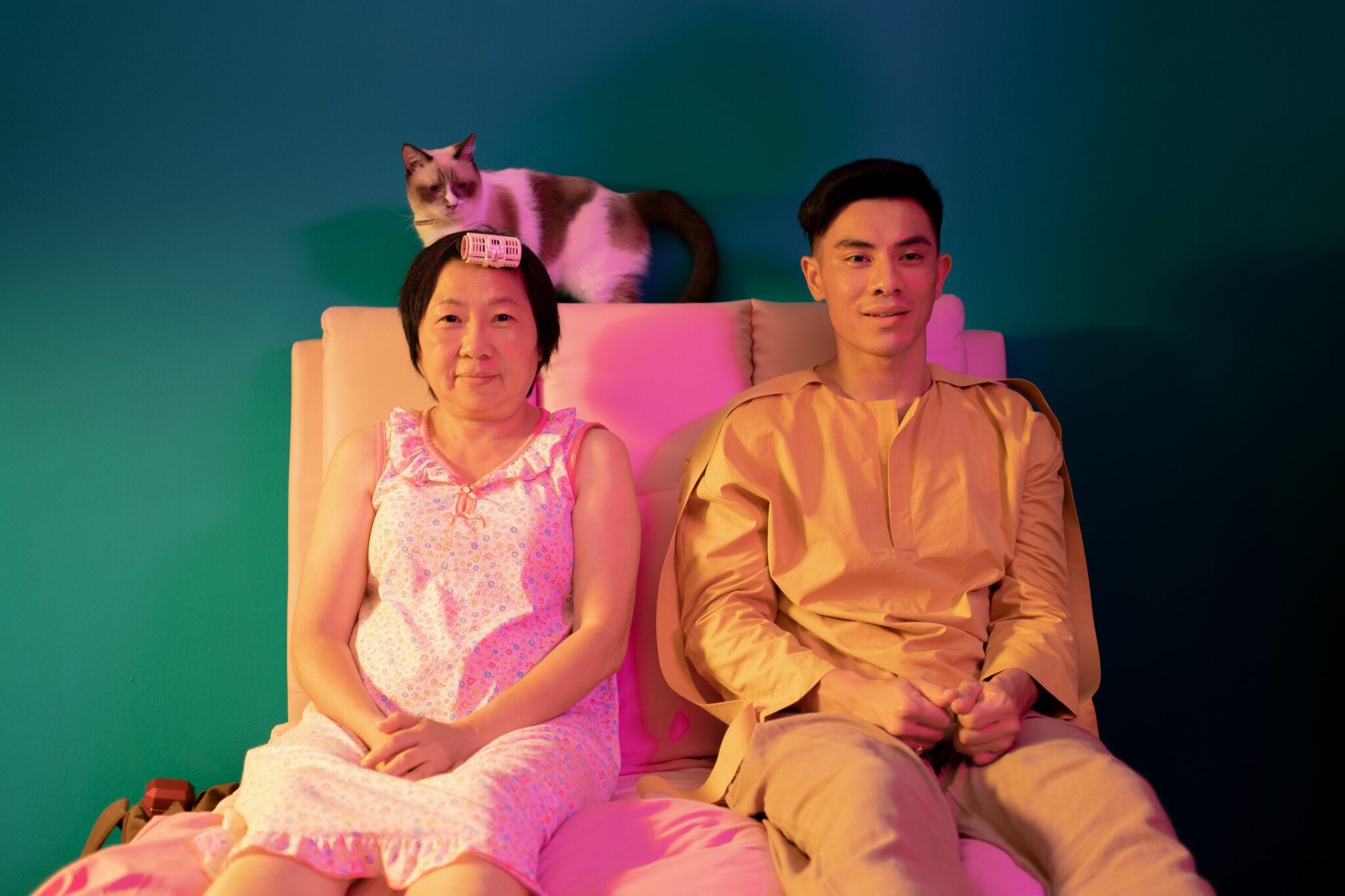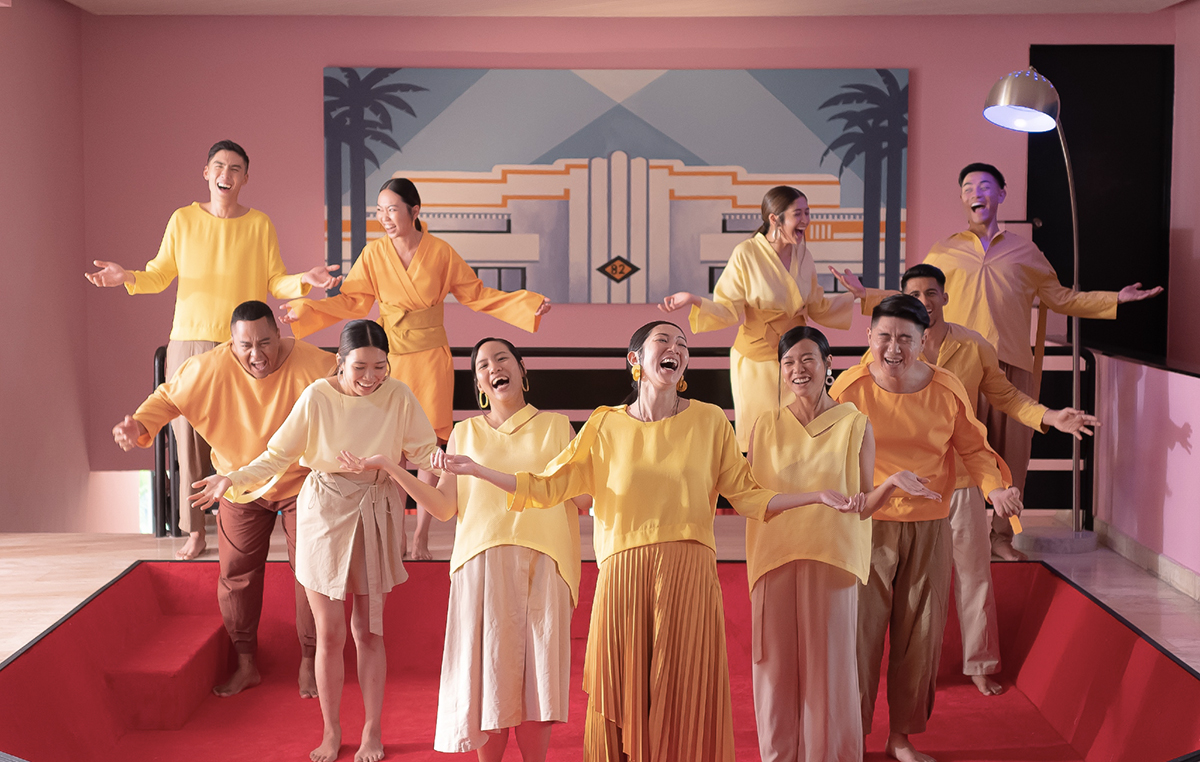Bee Thiam Tan’s Tiong Bahru Social Club is immediately pleasing. From its Wes-Anderson-like aesthetic to its heartwarming and soft-spoken lead, to its algorithmically driven sci-fi angle, the film is whimsical and dream-like, offering a look at the absurdity and weirdness of a world that both feels artificial and authentic.
Tiong Bahru Social Club follows Ah Bee (a delightfully innocent Thomas Pang), a worker who has recently been hired by the Tiong Bahru Social Club, a data-driven project that intends to create the happiest neighborhood in the world set in Singapore. Ah Bee lives a quietly content life with his mother Mui (an endearing and warm Guat Kian Goh), but in true mom fashion, she hopes that Ah Bee (now newly in his 30s) will settle down in a career and start his own family. The sweet and tender relationship between mother and son is what initially is so enjoyable about Social Club.

Despite its well-manicured aesthetic and satirical turns, the performances are genuine. Especially from Goh, who plays Mui as supportive and hopeful for the success of her son’s future. And when Ah Bee arrives at the impressive Tiong Bahru Social Club, part retirement community, part cult (???), and part algorithm experiment, we meet the hilariously straight-talking Ms. Wee (a playful Jalyn Han). Ah Bee is assigned to the cat-loving straight-shooter as a Happiness Agent.
Without giving away too many aspects of the plot, Social Club’s triumph is its ability to dip further and further into this odd science-fiction territory where algorithms decide your happiness without losing its traits of authenticity. Ah Bee is never putting on a front to hide his true feelings, indeed he seems actually incapable of it. We know by the Happiness Rings everyone wears what level of happiness Ah Bee is at. As beautiful and alluring as the candy-colored neon world of Social Club is, there is also a balance of melancholy and introverted thoughtfulness that comes with each character.

A major drawback is that we never fully lean completely into the dystopic aspect of the algorithm-driven community. Noorlinah Mohamed’s Haslinna, the director of the Social Club, is never fully examined, though we can sense an ominous nature to her role. The company behind the Social Club and their motive is never revealed. Similarly, the quiet commentary about the en bloc of the public housing Pearl Bank Apartments where Ah Bee and his mother live is mentioned in passing.
But, Social Club is not really meant to address those aspects. Its questions are more about the immediate characters, specifically Ah Bee. Can an algorithm truly decide your happiness and decide who you should love? Even if it could, should it? Is compatibility the key factor when finding a partner in life? Ah Bee explores these questions and eventually comes to some sort of conclusion even if we know it is not even close to being the end of his journey.
Tiong Bahru Social Club is delightful. It’s full of whimsy and comedy, beautifully shot, and thoughtfully written. If there are some gaps in the proverbial world-building, it can be forgiven for being completely committed to its theme and tone.
This film review is based on a screening from the Los Angeles Asian Pacific Film Festival. Photo Courtesy of Visual Communications.